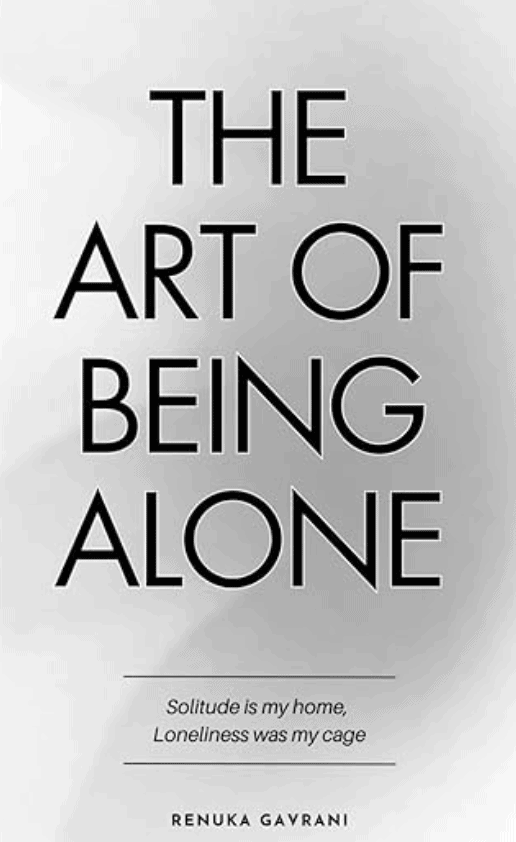The loneliness of entrepreneurship
When I started my first business in 2001, I was not prepared for the loneliness of entrepreneurship. I’m an introvert, so escaping the corporate cubicle hive of my HR career was actually a relief. I didn’t miss the office politics and forced social situations. Working alone in my home office suited me perfectly. Building all the bits of pieces of a service business was fun, and I loved the creativity and freedom. Then there was the exhilaration of hiring staff, and landing my first clients. I also joined a local entrepreneurship organization for networking and collaboration.
The days were busy. I dealt with people all the time. So where does the entrepreneur loneliness come in?
It creeps up.
It does, even for an introvert. And here is why:
1. Isolation
Entrepreneurship is isolating. There may be a team and a community, but there is just one seat for the driver.
And this isn’t natural, for humans. Being social is our genetic heritage, going back millions of years. Studies credit it for our development of language and technology and all the stuff that allows you to read this on whatever little gadget you are holding right now.
But it takes more than being social to combat the loneliness of entrepreneurship. We need a sense of belonging. A feeling of connection with like minded people. Unless you are lucky to have fellow entrepreneurs in your family or household, this is tough to find.
As entrepreneurs, it is easy to feel isolated because we are often the “other.” Though all our time is spent with people, we are never in a peer group. There is always an exchange involved. In our business, we are the boss and have a responsibility to lead. With clients, there is the responsibility to serve. Then with suppliers, we are the clients negotiating a deal. And in entrepreneurship organizations, we are representing our brand to network and collaborate. All these interactions are transactional, not inclusive. Spending all our time in these professional relationships without a feeling of inclusivity is a key reason for the loneliness of entrepreneurship.
2. Image and Identity
By nature, entrepreneurs multitask and juggle many projects, tasks, activities, and responsibilities. It’s part of our identity. We are a leader, and the boss. It’s always a public role, on a large or small scale. Every business is different, but all entrepreneurs are involved in some level of marketing and promotion. It could be local TV and radio, print publications, social media, public speaking, billboards, or podcasts. One way or another, entrepreneurs are out there to build their business and increase brand awareness. This requires presenting an image of strength and confidence.
However, that strong public image and identity leads to isolation because it doesn’t leave room to connect with people on a personal level. As explained earlier, relationships tend to be transactional. People engage because they want to be your customer, or land you as a client. And because of the responsibility to represent your brand and maintain the image of strength, these interactions are all professional. If someone asks how things are going, the answer must always be positive. Even if you are in the middle of a terrible, stressful, challenging week.
3. Confidentiality
This is another reason for the loneliness of entrepreneurship. The matter of confidentiality is a barrier to connecting with people. Not every business has high-value intellectual property to protect, but every business has reason to want confidentiality. Entrepreneur loneliness creeps up because we can’t talk honestly about our issues and challenges with other business owners. Vulnerability is necessary to bond with people on a personal level, and this isn’t possible when confidentiality is a concern.
An inside baseball talk about your sector and market is fun, informative, and provides a valuable sense of belonging. This is why there are thousands of industry conferences every year in the US alone. It’s a safe space that allows for personal connections to develop. As a franchisor, I attended a few Canadian Franchise Association conventions. These were valuable for 3 reasons. The workshops and keynotes built my skills and inspired me. And I met amazing people who understood the joys and challenges I was facing. Shop talk about franchising was enjoyable, and I made one very good friend that way.
However, these kinds of conversations can reveal sensitive information. Details about strategic plans, weaknesses, or pricing strategy require confidentiality. If this knowledge were to get out, it could negatively impact valuable competitive advantages. This creates another barrier that leads to the loneliness of entrepreneurship. It doesn’t feel safe to share freely because of the need for confidentiality, and this prevents the feeling of connection and inclusion.
Personally, I found that the people I trusted didn’t have the knowledge or expertise to provide meaningful feedback and support. And the people who could help were competitors, or close friends with competitors, or just untrustworthy gossips.
4 ways to cope with the loneliness of entrepreneurship
There are many strategies to help prevent entrepreneur loneliness. It comes down to building connections outside of the circle of employees, suppliers, and customers. This is a little tougher for introverts, but there are some great books which can help with that.
1. Mastermind Groups
Online or in person, mastermind groups are a safe space to connect with other entrepreneurs. There is generally a code of confidentiality, and often groups don’t have competing businesses, so you can be free and honest. Also, mastermind groups are a way to access a broad range of ideas and expertise, which can give you valuable perspective on your business.
2. Mentors
Having a mentor is a powerful way to prevent isolation as an entrepreneur. It’s a chance to brainstorm solutions with someone who knows your sector. Because sharing freely, feeling heard, and being encouraged are all effective for creating a sense of inclusion.
3. Fitness & Fun
Getting out of the bubble of our business to have fun is a healthy way to stay balanced. After all, the mental health benefits of exercise and laughter is well known. Taking time for fitness and hobbies that you enjoy gives the brain a break and creates opportunities to connect with people.
4. Entrepreneurship Organizations
Finally, a benefit of most networking groups is that memberships usually allow only 1 business per sector. Not having a competitor in the group opens up the possibility to develop friendships. Joining an entrepreneurship organization is more than learning and referrals – real connections can be made. I actually married someone I met in my BNI Chapter!
Book recommendations to cope with loneliness
Conclusion
As shown above, it is very common for entrepreneurs to experience isolation and lonliness at one time or the other. Clearly, this is challenging for mental health and productivity. However, there are strategies that can help business owners cope. Specifically, joining mastermind groups, having mentors, taking time for fitness and hobbies, and joining an entrepreneur organization can help prevent the loneliness of entrepreneurship.
The loneliness of entrepreneurship Read More »






